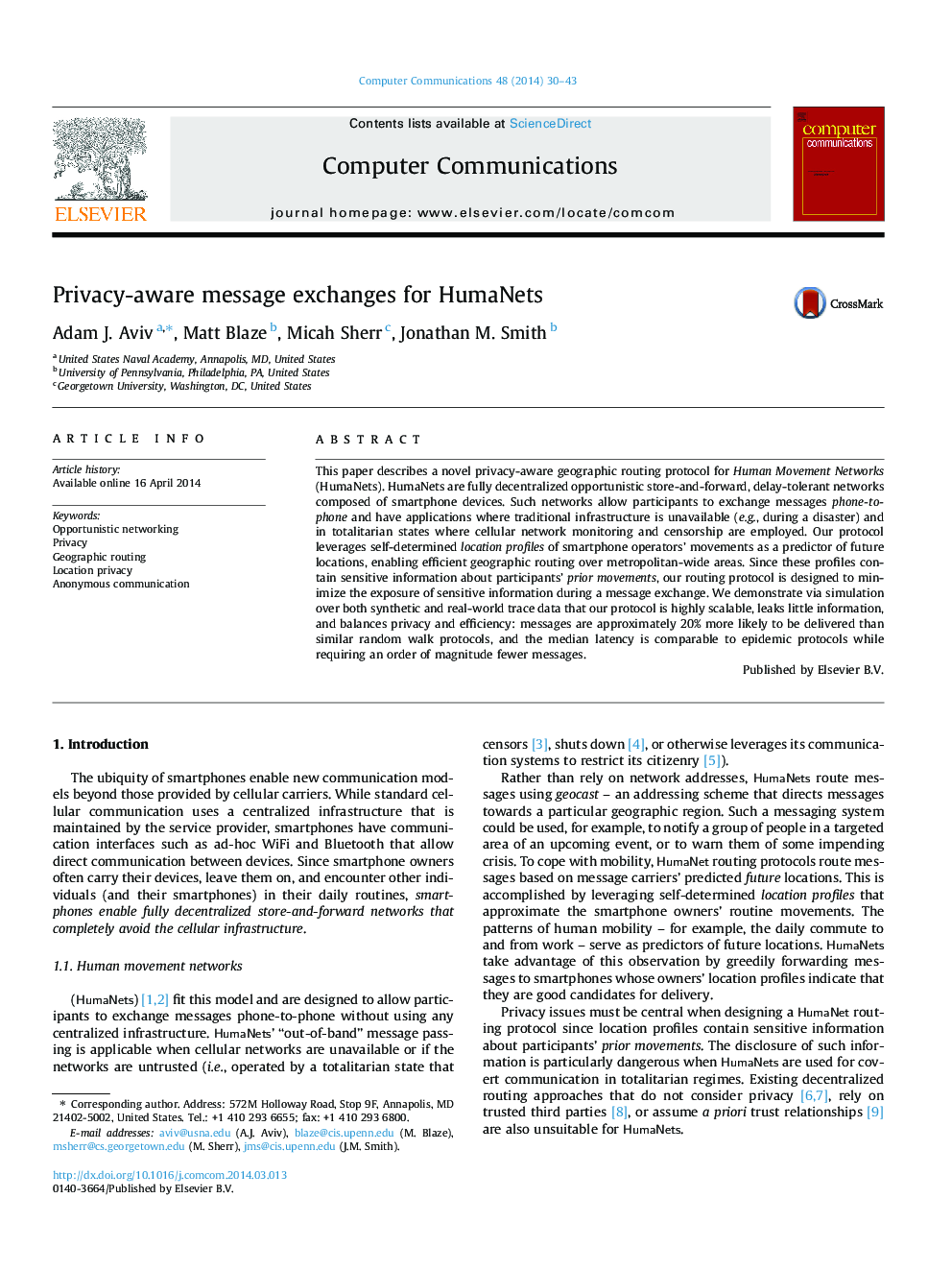| Article ID | Journal | Published Year | Pages | File Type |
|---|---|---|---|---|
| 445930 | Computer Communications | 2014 | 14 Pages |
This paper describes a novel privacy-aware geographic routing protocol for Human Movement Networks (HumaNets). HumaNets are fully decentralized opportunistic store-and-forward, delay-tolerant networks composed of smartphone devices. Such networks allow participants to exchange messages phone-to-phone and have applications where traditional infrastructure is unavailable (e.g., during a disaster) and in totalitarian states where cellular network monitoring and censorship are employed. Our protocol leverages self-determined location profiles of smartphone operators’ movements as a predictor of future locations, enabling efficient geographic routing over metropolitan-wide areas. Since these profiles contain sensitive information about participants’ prior movements, our routing protocol is designed to minimize the exposure of sensitive information during a message exchange. We demonstrate via simulation over both synthetic and real-world trace data that our protocol is highly scalable, leaks little information, and balances privacy and efficiency: messages are approximately 20% more likely to be delivered than similar random walk protocols, and the median latency is comparable to epidemic protocols while requiring an order of magnitude fewer messages.
